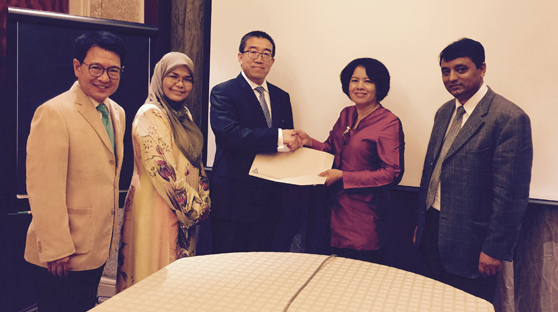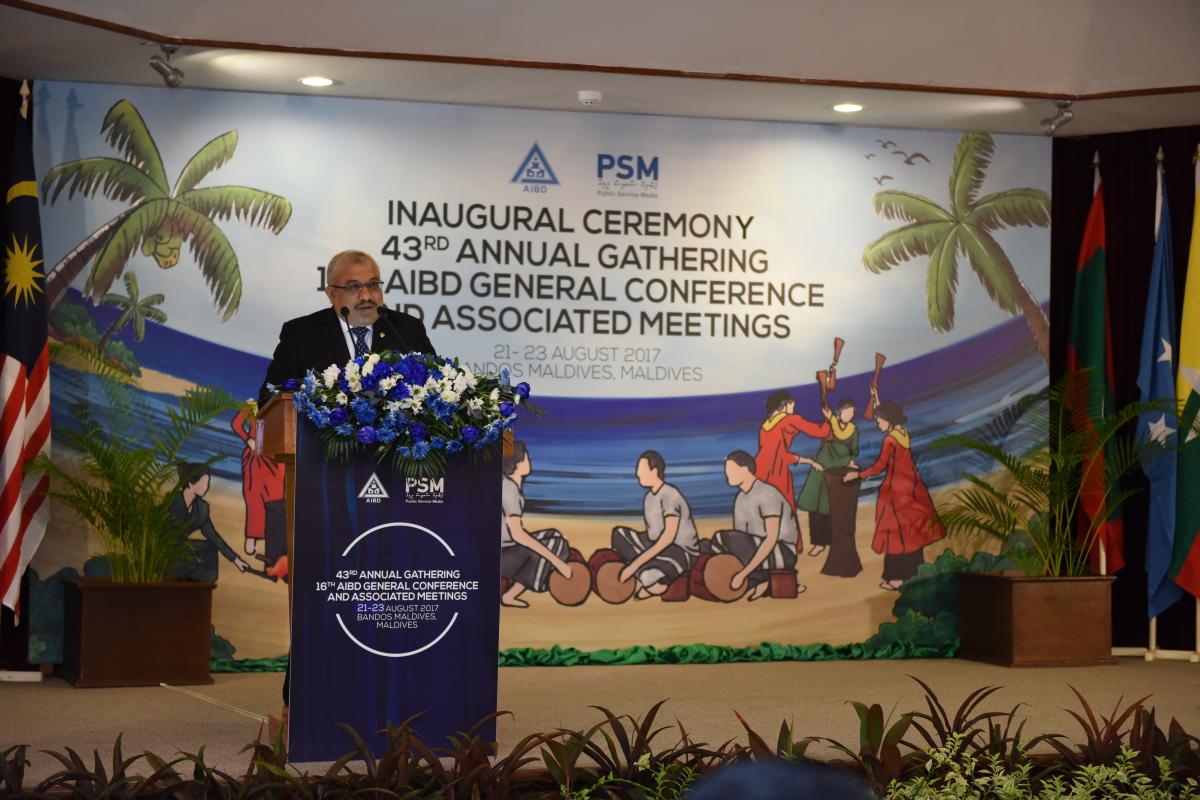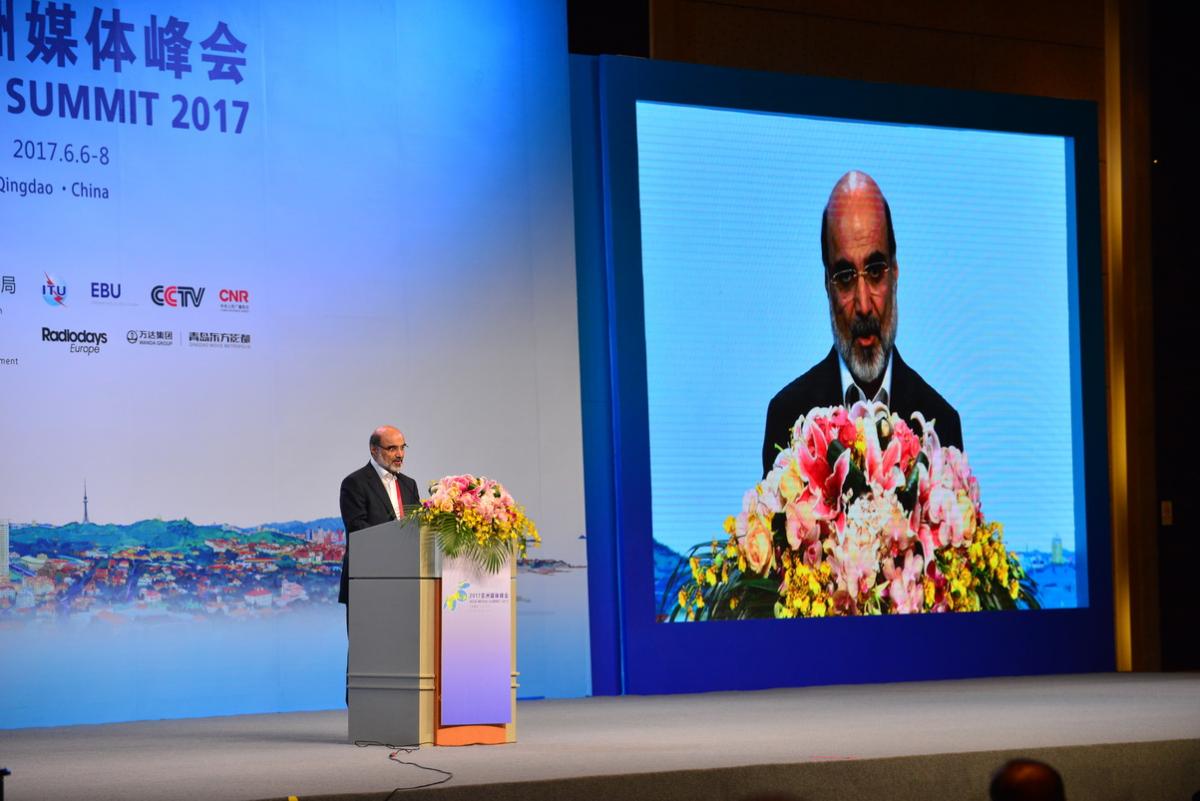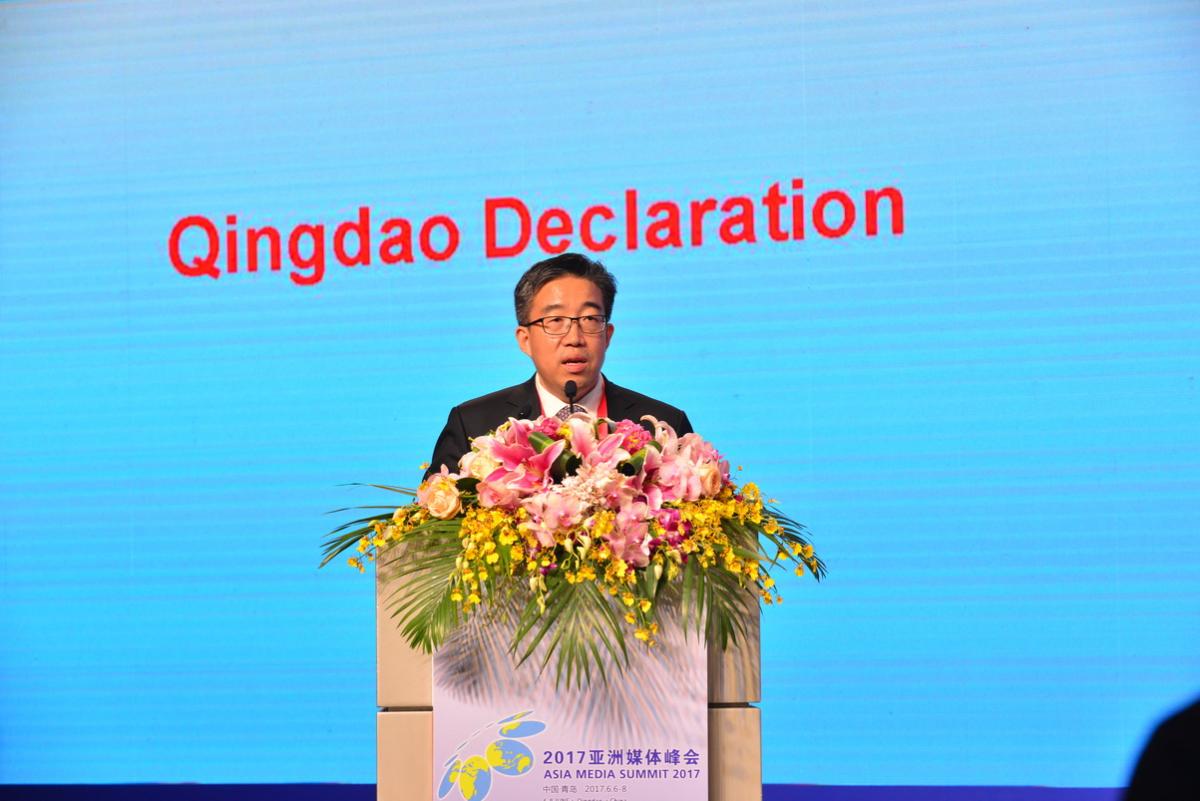AIBD is pleased to announce that Mr. Chang Jin from China has been appointed as Director of AIBD on 15 January 2015. The interview panel met in Kuala Lumpur, Malaysia to finalise the decision after an extended short-listing process and lengthy deliberation.

Mrs. Rosarita Niken Widiastuti, President of AIBD General Conference, chaired the panel. The panel also included Mr. Anothai Udomsilp, Chairman of the Strategic Planning Team (SPT) and Dato’ Adilah Shek Omar and Mr Laxman Humagain, Executive Board members.
Mr Chang Jin will take office as soon as possible pending work permit approval.
Bio
Mr Chang Jin obtained his Bachelor of Arts degree in English for Science and Technology at Xi’an Jiaotong University of China in 1989, and Master of Science degree in Media and Communications from the London School of Economics and Political Science (LSE) in 1998. In 1992 he joined the Ministry of Radio, Film and Television (which has evolved into the present SAPPRFT) and has since worked with its International Cooperation Department. From 2002 to 2012 Mr Chang held successively the positions of Deputy Director of the European, North American and Oceanian Affairs Division, and Consultant & Deputy Director of the Asian, African and Latin American Affairs Division. In 2012 he was named Director of the latter Division.
On his more recent posts Mr Chang Jin has committed himself to the advancement of the exchanges and cooperation in radio and television between the Chinese government and the Asian, African and Latin American regions. Through exchanges and cooperation in radio and television programming, participation in the activities of international organizations, and implementation of training programmes, Chang Jin and his colleagues have been able to contribute to the mutual understanding and friendship between the peoples and closer cooperation between the Chinese government and governments of those regions.
Through the years Chang Jin participated, and played key roles in the hosting of a number of international conferences in China, which include the 35th ABU General Assembly in 1998, the 27th AIBD Governing Council in 2001, the 43rd ABU General Assembly in 2006, the 2008 China-ASEAN Forum on Radio & TV Cooperation, the 2009 China-South Asia Forum on Radio & TV Cooperation, the 2010 Asia Media Summit, the 2012 and 2014 China-Africa Forums on Media Cooperation, and the 2013 China-Arab States Forum on Radio and TV Cooperation. These conferences all laid strengthened and solid foundations for the substantial cooperation between China and those organizations and countries.
Since 2007 Mr Chang Jin has been involved in the international radio and television training programmes that SAPPRFT has arranged for developing countries mainly in Asia, Africa and Latin America. With the support of various funds from the Chinese government, the scale of those training has kept expanding. To the end of 2014, 90 workshops have been completed, benefiting more than 2000 radio and television professionals from about 140 countries.
Chang Jin understands the great value of the cultural heritage of China and Asia Pacific, and appreciates the important role of broadcasting in disseminating the cultural heritage and building a better life for peoples in the region. He respects different cultural backgrounds.
Chang Jin is also talented in musical composition, vocal performance, and photography.
AIBD Appoints Mr. Chang Jin as New Director
AIBD is pleased to announce that Mr. Chang Jin from
AIBD Recruits New Programme Managers
AIBD recently recruited new programme managers and tapped the services of the former Director General of the Korea Communications Commission under the Institute’s secondment programme as part of initiatives to strengthen its human resource capacity and better serve members.
The 16th General Conference: Members Seek a More Relevant and Sustainable AIBD
Calls for more in-country training workshops and sustainability concerns dominated discussions among AIBD members who participated in the 43rd Annual Gathering/16th AIBD General Conference in Maldives.
Maldives’ VP Urges Media to Inspire Nations for a Better Society
Maldives Vice President Abdullah Jihadsays “media’s key role is not to depress and dishearten citizens, but to motivate, encourage and inspire nations” in order to pave the way for future generations and build a better society.
ASEAN-China-UNDP Symposium in Chiang Rai
The ASEAN-China-UNDP Symposium on Financing the Implementation of the Sustainable Development Goals in ASEAN was held during 21 – 22 August 2017 in Chiang Rai, Thailand.
The ASEAN-China-UNDP Symposium on Financing the Implementation of the Sustainable Development Goals (SDGs) in ASEAN brought together senior representatives from governmental agencies of ASEAN Member States and China, ASEAN sectoral bodies, prominent think tanks and representatives of civil society, the ASEAN Secretariat, UNDP, the private sector and the media.
The ABU Secretariat invites applications for the post of DIRECTOR ABU PROGRAMMING
The ABU is seeking to recruit a high-calibre professional as a Director ABU Programming. The present Director ABU Programming will complete his contract with the ABU towards the end of 2017. Applications are therefore being sought to fill this important position.
This is one of the senior positions in the ABU Secretariat, reporting directly to the Secretary-General, and responsible for running all ABU Programming activities.
The statements below reflect the general responsibilities and requirements for the position but may not describe all work requirements inherent to the job
The ABU Secretariat invites applications for the post of DIRECTOR ABU NEWS
The ABU is seeking to recruit a high-calibre professional as a Director ABU News, starting in January 2018. The present Director ABU News will complete his contract with the ABU at the end of this year. Applications are therefore being sought to fill this important position with a view to having the new Director take over the role in January 2018.
This is one of the most senior positions in the ABU Secretariat. The Director ABU News is reporting directly to the Secretary-General, and is responsible for the overall management and supervision of the News Department.
Media’s Huge Task in the Face of War & Terrorism
As the world faces the ominous phenomenon of war, insecurity and terrorism, media assumes a huge task of promoting peace, friendship, morality and spirituality.
It has the responsibility to “combat any act which seeks to create phobia towards religions.” It also has to “ceaselessly combat injustice as the root cause of terrorism” in different parts of the world, Dr Abdolali Ali Askari, President of AIBD General Conference, and President, Islamic Republic of Iran Broadcasting, said in his welcoming remarks during the opening ceremony of the 14th Asia Media Summit from 6-7 June 2017 in Qingdao, China.Qingdao Declaration on Media and the World’s Sustainable Development Qingdao, China, June 7, 2017
Preamble:
Mindful of the pressing challenges facing our world, among them, poverty, conflict, socioeconomic inequality, environmental degradation and climate change that call for urgent and concerted action to accelerate development and progress in our society;
Noting that there are several creative and innovative mechanisms to achieve sustainable development, appropriate to every country’s own needs, expectations and pace of development, and demanding participation and support from government, private sector, civil society, local communities, families and individuals alike;
Press Release
The 14th Asia Media Summit (AMS), opened in Qingdao, China on the 6thof June, ended on the 8th of June. With the theme ‘Media on the Frontline of Global Development’, the Summit focused on the many important roles media play in promoting sustainable development besides presenting dialogues and debates on a series of hot topics. Most importantly the AMS passed the Qingdao Declaration on Media and the World’s Sustainable Development. Delegates to the Summit hailed it as a new starting point for efforts in promoting the world’s sustainable development, and further enhancing ties between media organisations in the Asia-Pacific region and those of the world.
China’s Vice Premier Madame Liu Yandong delivered the keynote address in the Inaugural Session, attended by more than 450 delegates including government leaders, executives and experts from media organisations in Asia-Pacific and the world. The summit also provided the platform for UN and UNESCO officials to deliver special messages from Deputy Secretary-General of UN Madame Amina J. Mohammed and Director-General of UNESCO Madame Irina Bokova.




